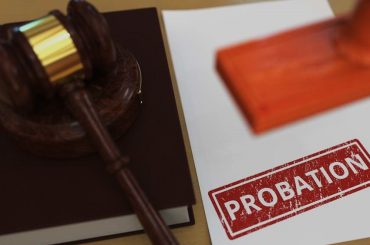A Pretrial Diversion Program offers an alternative way to resolve a criminal case that circumvents traditional prosecution. Participants in this program are redirected from the criminal justice system to a supervised release or probationary period.
Successful completion of the program leads to the dismissal of the case, allowing participants to avoid jail time and a criminal record. However, failure to meet the program’s requirements results in prosecution for the original offense. This approach provides an opportunity for rehabilitation outside the conventional criminal process.
What is a pretrial diversion program?
Pretrial diversion programs offer an alternative route for resolving criminal cases, especially designed to bypass the conventional trial process. Typically, the criminal justice system involves arrest, charging, and then either a guilty plea with sentencing or a trial. However, pretrial diversion programs intervene after arrest but before trial, with some programs starting after charges are filed and others even before charging.
These programs are designed to alleviate the burden on local court systems by redirecting low-level, non-violent offenders out of the traditional legal proceedings. They focus on rehabilitation and are particularly beneficial for individuals who are deemed low-risk for reoffending, allowing them to recover from their mistakes without enduring the severe consequences of a criminal conviction or enduring arrest record.
The availability and type of diversion programs vary by state, county, and city, reflecting local legal and social priorities. Common types of offenses that may qualify for diversion programs include drug possession (notably marijuana), shoplifting, DUI, and domestic violence. These programs aim to provide targeted support to help individuals reintegrate into society while managing the impact on the judicial system.
What does the program entail?
Pretrial diversion programs are designed to offer rehabilitative alternatives to traditional criminal prosecution, with each program tailored to address the specifics of the alleged offense. Here’s a detailed breakdown of what these programs generally entail:
For drug offenses, pretrial diversion programs might include:
- Completion of a drug rehabilitation or substance abuse program,
- Regular drug testing and passing random drug tests,
- Regular updates to the court or a program officer about one’s status,
- Maintaining stable employment or full-time educational status.
For DUI offenses, the programs often require:
- Restitution payments to any victims if the arrest involved an accident,
- Enrollment and completion of an alcohol rehabilitation program,
- Installation and use of an ignition interlock device in any vehicle driven by the participant,
- Successful completion of a driver safety course.
Common requirements across most pretrial diversion programs include:
- Avoiding further arrests or criminal charges during the program period,
- Adherence to any existing restraining orders,
- Payment of all associated program fees,
- Completion of designated community service hours.
These programs are generally managed by state or county offices that also handle probation, emphasizing both rehabilitation for the participant and restitution to society or specific victims.

What offenders are eligible for diversion?
Pretrial diversion programs typically have eligibility criteria centered around the offender’s criminal history and the nature of the offense. Here’s a detailed overview of typical eligibility requirements:
Criminal History Requirements:
- Most programs prefer candidates with no prior convictions or a relatively clean criminal record.
- Some programs are more flexible and may admit individuals with a criminal history, especially if it is judged that the offender would benefit more from diversion than from traditional criminal proceedings. Judges often have the discretion to make these exceptions.
Nature of the Offense:
- A fundamental requirement for eligibility is that the offender must not pose a threat to public safety.
- Consequently, individuals accused of violent crimes are generally deemed ineligible for diversion programs due to the potential risk they pose.
What criminal offenses are eligible?
Diversion programs are typically designated for non-violent misdemeanor offenses. The rationale behind this is to provide an alternative route for individuals charged with lesser, non-threatening crimes to rehabilitate without undergoing traditional criminal proceedings.
For more serious charges, such as violent crimes or felonies, courts generally view the risks as too high to warrant diversion. The concern is that releasing someone accused of a significant or violent crime into a diversion program could pose a threat to public safety. Thus, eligibility for diversion programs is usually restricted to less severe offenses to ensure that only those who pose minimal risk to the community are considered.
First plead guilty?
In the context of pretrial diversion programs, whether or not you need to plead guilty varies by program. Here’s a breakdown of the implications:
Programs Requiring a Guilty Plea:
- Some diversion programs mandate that you plead guilty to the charges as a precondition for entry. This is a significant commitment because it involves waiving any defenses you might have against the charges.
- The risk here is substantial: if you fail to meet the program’s requirements, the case proceeds directly to sentencing, since you’ve already admitted guilt.
Programs Not Requiring a Guilty Plea:
- Other programs do not require a guilty plea to participate. This can offer a safer option, as it allows you to retain your legal defenses.
- If you do not complete the program successfully, you simply return to the criminal justice process at the point you would have been had you not entered the program, with the opportunity to contest the charges.
Given these differing requirements and consequences, consulting with a criminal defense attorney before deciding to participate in a diversion program is crucial. An attorney can provide guidance on the best course of action based on the specifics of your case and the nature of the diversion program offered. This is particularly important if pleading guilty could significantly impact your legal situation.
What happens to me after the program ends?
When you successfully complete a pretrial diversion program, the outcome generally leads to the charges being dropped or the case being dismissed. Here’s what typically occurs based on the stage at which the diversion program is entered:
Programs Before Charges Are Filed:
- If you enter a diversion program before charges are officially filed, the prosecutor will typically drop the case upon your successful completion of the program.
Programs After Charges Are Filed:
- For diversion programs initiated after charges are filed but before trial, completion usually results in the prosecutor dropping the charges. Subsequently, the judge will dismiss the case.
If a Guilty Plea Was Required:
- In scenarios where the program required a guilty plea, successful completion can lead to the judge changing your guilty plea to not guilty and dismissing the case.
- Alternatively, the judge might conclude the case and initiate the expungement process to seal the guilty plea, effectively clearing the record.
Consequences of Failing the Program:
- Failure to complete a pretrial diversion program results in your case being reactivated in the court system. The prosecution will resume where it left off.
- If the diversion was contingent upon a guilty plea, the case will return directly to the sentencing phase. Since you pleaded guilty to participate in the diversion, you forfeit any legal defenses you might originally have had, limiting your options in court.
Consulting with a legal professional before deciding to enter a pretrial diversion program is crucial, especially to understand the implications of pleading guilty as part of the program terms.




